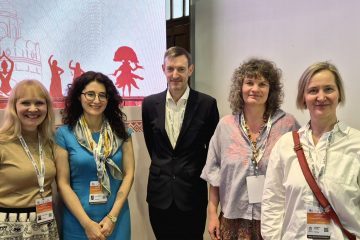Over the course of a full week, Barcelona became the beating heart of global cultural policy and civic dialogue. While MONDIACULT 2025, convened by UNESCO and hosted by the Government of Spain, gathered more than 150 ministers of culture and hundreds of representatives from civil society, cultural institutions, artists and youth organisations, the Agora Cívica, held in parallel, extended the conversation into the public sphere by engaging citizens, civil society organisations, researchers and practitioners from around the world.
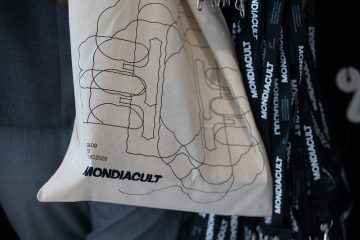
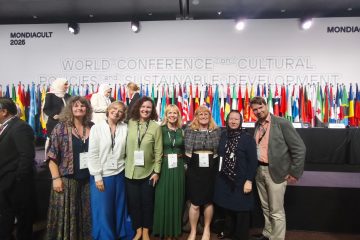
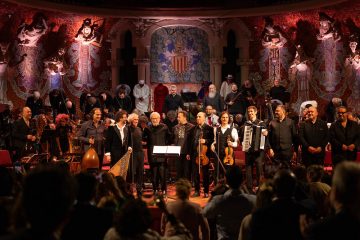
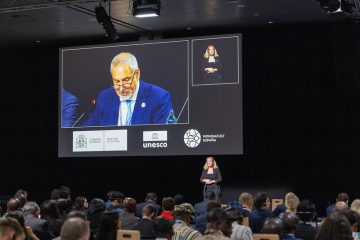
Inside MONDIACULT 2025: Cultural Policies and Global Commitments
The World Conference on Cultural Policies – MONDIACULT 2025 was a landmark event reaffirming that culture is a cornerstone of sustainable development and a foundation for peace and inclusion. Bringing together more than 2,500 participants, including ministers and delegates from across the globe, to discuss how culture can contribute to addressing the world’s most urgent challenges, from climate change and inequality to digital transformation and social cohesion.
The conference’s agenda focused on major cross-cutting themes such as Cultural Rights, Culture and Education, Culture and Artificial Intelligence, Culture and the Economy, Culture and Climate Action, Culture and Peace, and Culture in Crisis Situations.
Among the highlights was the launch of UNESCO’s first Global Report on Cultural Policies, offering a comprehensive overview of trends and policy gaps worldwide, and the unveiling of the Virtual Museum of Stolen Cultural Objects, a new digital tool to fight the illicit trafficking of heritage. Another valuable initiative has been the creation of the MONDIACULT Online Library, an open-access digital platform designed to collect and share the conference’s key resources, reports, and statements, making the knowledge generated through MONDIACULT accessible to all.
The MONDIACULT Youth Forum also gave the floor to young professionals, students and cultural activists, who shared their perspectives on the role of culture in building a more just and creative future. Their recommendations called for more inclusive participation, intergenerational dialogue and equitable access to culture in all its forms.
The outcome document that was adopted by the interministerial meeting reaffirmed the shared commitment to strengthen the place of culture in the global agenda, and to work towards the creation of a stand-alone Culture Goal in the post-2030 UN Sustainable Development Framework.
“There can be no sustainable development without culture,” reminded Ernesto Ottone R., UNESCO’s Assistant Director-General for Culture, capturing the spirit of the conference.
The ICH NGO Forum’s Contribution to MONDIACULT
The ICH NGO Forum, representing accredited NGOs under the 2003 Convention, was also strongly present at MONDIACULT 2025. Around thirty accredited organisations participated actively in the discussions, workshops and side-events.
On this occasion, the Forum presented a joint statement, highlighting how living heritage can contribute to the ambitions of the Culture Goal and to sustainable development. The statement also called for stronger inclusion of communities and practitioners in cultural policy design and implementation, emphasising that heritage safeguarding and sustainable development must go hand in hand.
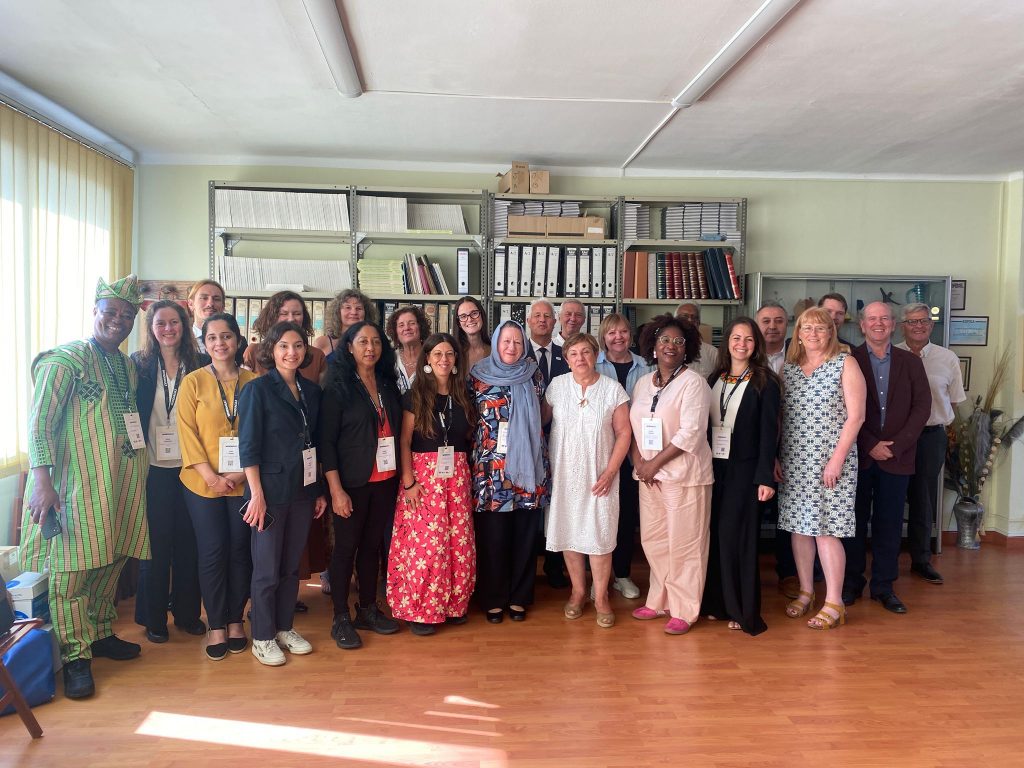
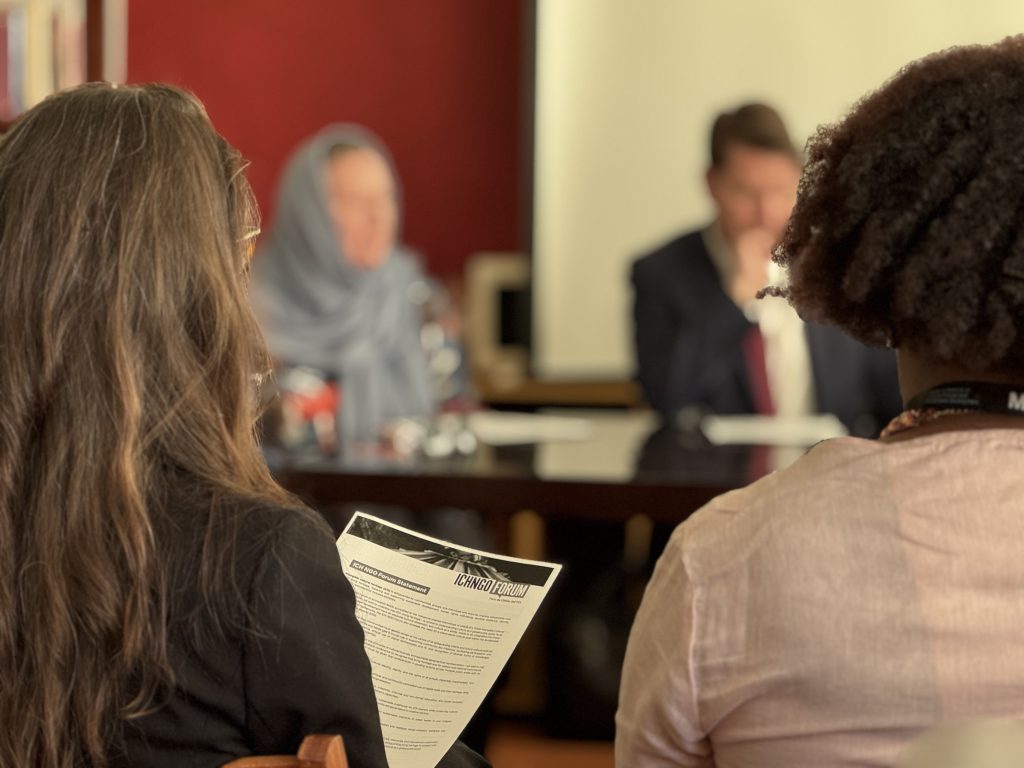
The Culture Goal 30: Towards a Stand-Alone Global Objective for Culture
One of the central highlights of both MONDIACULT 2025 and the Agora Cívica was the official launch of the Culture Goal 2030 initiative, a collective campaign led by a coalition of international civil society organisations and cultural networks.
The initiative calls for the inclusion of culture as a stand-alone goal in the post-2030 United Nations Agenda for Sustainable Development. It is the culmination of several years of international mobilisation, following the Zero draft presented during MONDIACULT 2022 in Mexico.
The session that launched the new draft brought together an exceptional and diverse panel of government representatives, international organisations and civil society actors, reflecting the broad coalition behind the Culture Goal 30. Among them were Ernesto Ottone (UNESCO Assistant Director-General for Culture), Margareth Menezes (Minister of Culture of Brazil), Ernest Urtasun (Spanish Minister of Culture), and Alexandra Xanthaki (UN Special Rapporteur on Cultural Rights), alongside representatives from leading cultural networks and organisations such as ICOM, ICOMOS, Culture Action Europe, and other partners involved in shaping the draft.
Together, they presented the new version of the Culture Goal, a text refined through wide consultation with more than 250 organisations, and an innovative framework of targets and indicators designed to make culture’s contribution to sustainability visible and measurable. As John Crowley, former Chief of Section for Research, Policy and Foresight in the UNESCO Sector for Social and Human Sciences, lead author of the version 1 of the Culture Goal, summarised:
“We need to prove that culture is measurable — not to reduce it to numbers, but to make its impact visible and credible in global policy.”
Speakers agreed that recognising culture as a global goal is both a moral imperative and a practical necessity. They called for culture to be placed at the heart of sustainable development, as a force connecting people, the environment, and the economy, and urged that the long-missing cultural dimension finally be given its rightful place within global policy. The launch of the Culture Goal 2030 marked a decisive shift from advocacy to shared governance, uniting governments, institutions and communities around a common commitment to embed culture in the world’s future development agenda.
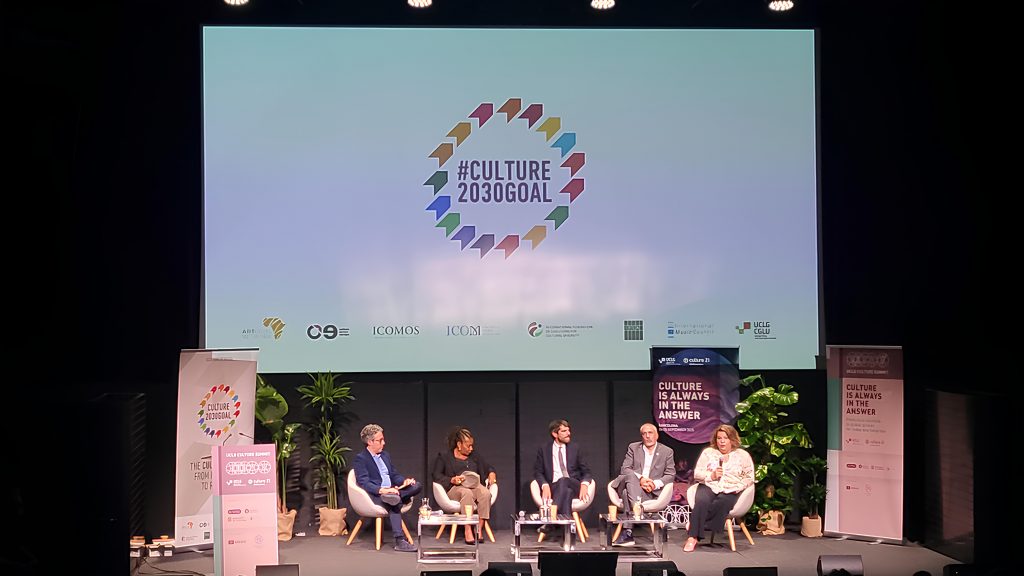
Agora Cívica: Culture, Rights and Global Dialogue
Held in parallel with MONDIACULT, the Agora Cívica offered a participatory and civic complement to the intergovernmental conference — an open space where policy met practice, and where global debates were grounded in the voices and experiences of people.
Organised by the Catalan Government, the city of Barcelona, and the Spanish government, the Agora brought together public authorities, NGOs, cultural professionals, artists, academics and institutions from every continent. It became a genuine meeting point between civil society, local governments and international organisations, creating fertile ground for the exchange of ideas, experiences and projects.
The diversity of contributions — from the presentation of Spain’s new Cultural Rights Plan to panels on creative ecologies, culture and well-being, and research dialogues — made the Agora a space of true pluralism. More than a side event, it embodied its name: a civic forum for exchange, reflection and collective imagination.
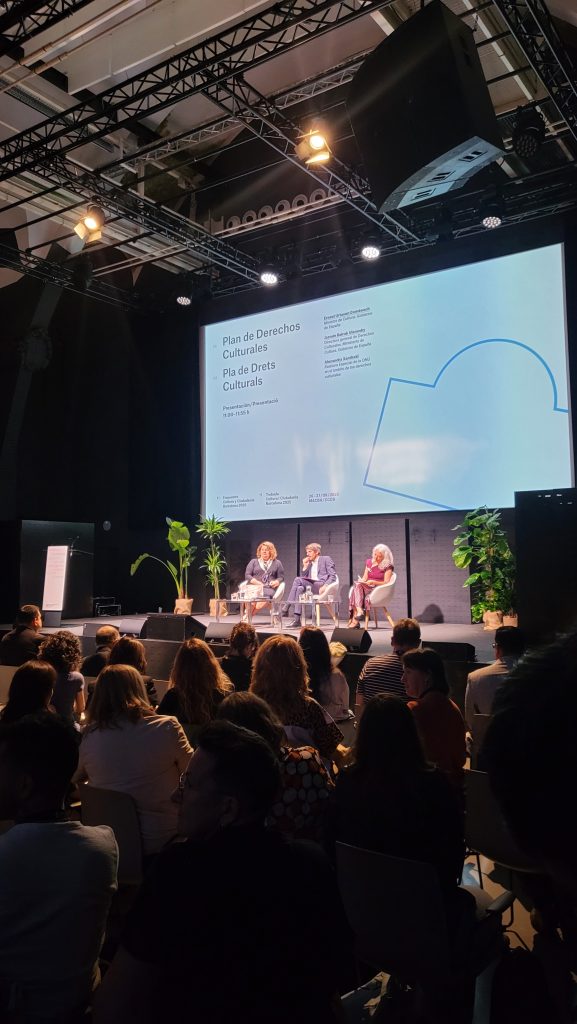
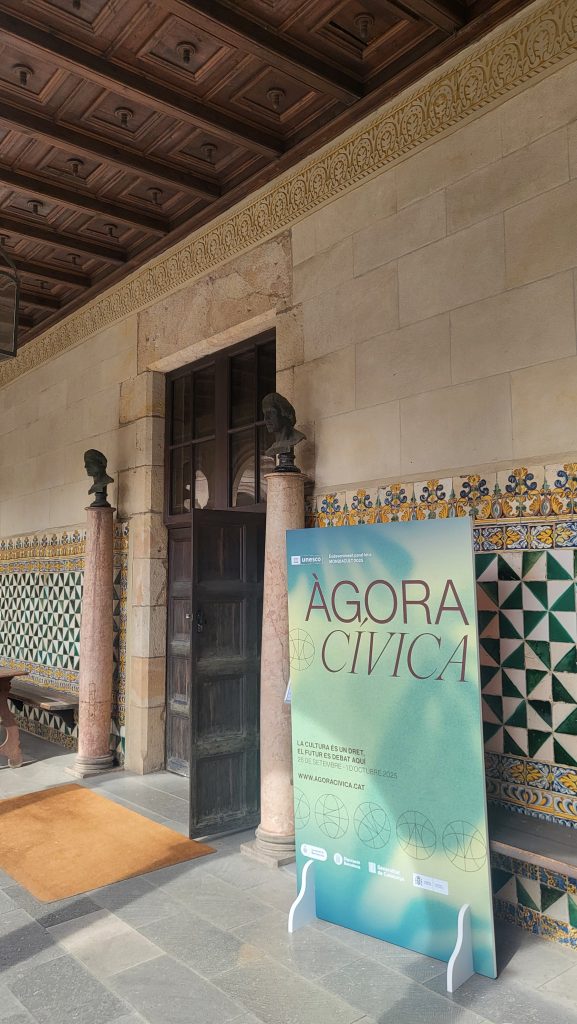
A Celebration of Living Heritage
All of this unfolded in a festive atmosphere. As Barcelona celebrated La Mercè, its major annual festival honouring the Mare de Déu de la Mercè, participants experienced firsthand the vitality of Catalonia’s living heritage — from the Giants of Barcelona to the castells (human towers), inscribed on UNESCO’s Intangible Cultural Heritage List.
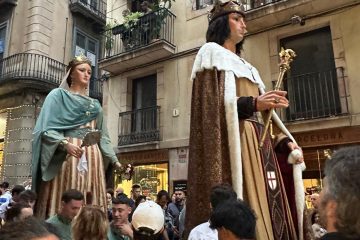
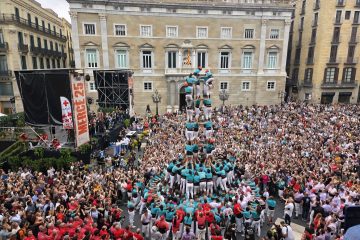
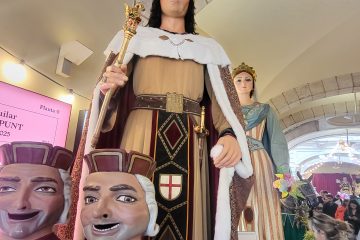
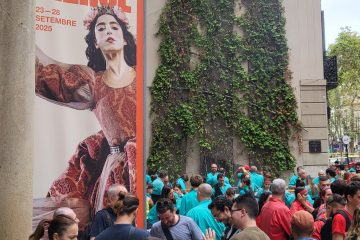
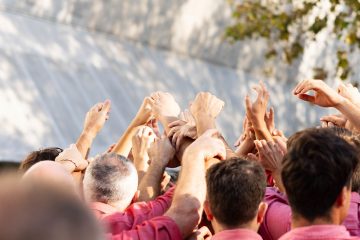
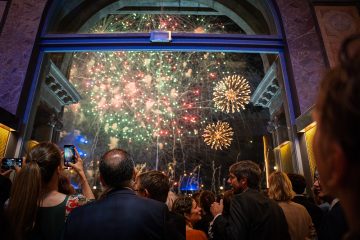
From Global Policy to Local Participation: The Role of the ENFP Can Play
For the European Network of Focal Points (ENFP), the reflections and commitments emerging from MONDIACULT 2025 and the side events offer valuable perspectives for future action and collective engagement. They relate directly to the network’s collaborative approach to connecting policy, practice and knowledge in the field of living heritage in Europe.
As the global cultural community now moves from dialogue to implementation, the ENFP and its members can play a role in ensuring that living heritage remains at the heart of this transformation. This dialogue can help members explore how living heritage contributes to social cohesion, sustainability and well-being, and how these dimensions can be better integrated into European and national policies.
The ENFP is particularly well positioned to build on these global processes and translate them into meaningful regional collaboration. By facilitating exchange between national focal points, promoting collaborative research, and linking global frameworks with local realities, the network helps translate the ambitions of MONDIACULT into meaningful, community-based action. The insights emerging from these discussions – from the recognition of culture as a global public good to the ambition of a Culture Goal 2030 – provide both inspiration and strategic direction for the network’s future work.
Strengthening the place of culture in sustainable development requires the shared commitment of governments, institutions, and civil society alike. Through continued cooperation and dialogue, the ENFP can help build bridges between these levels, making Europe’s diverse living heritage a laboratory for innovative, inclusive and sustainable futures.
More info:
Related articles:

